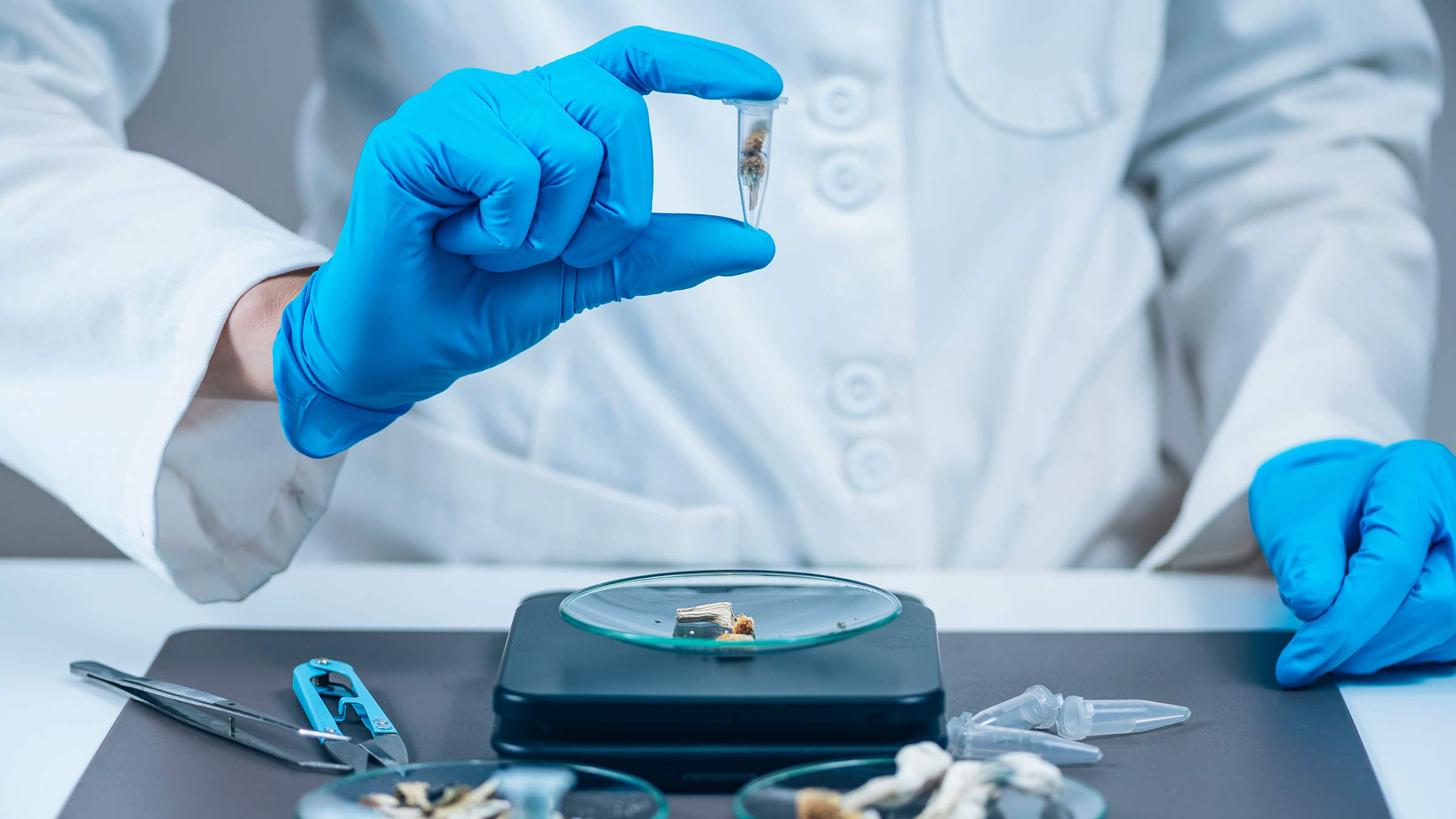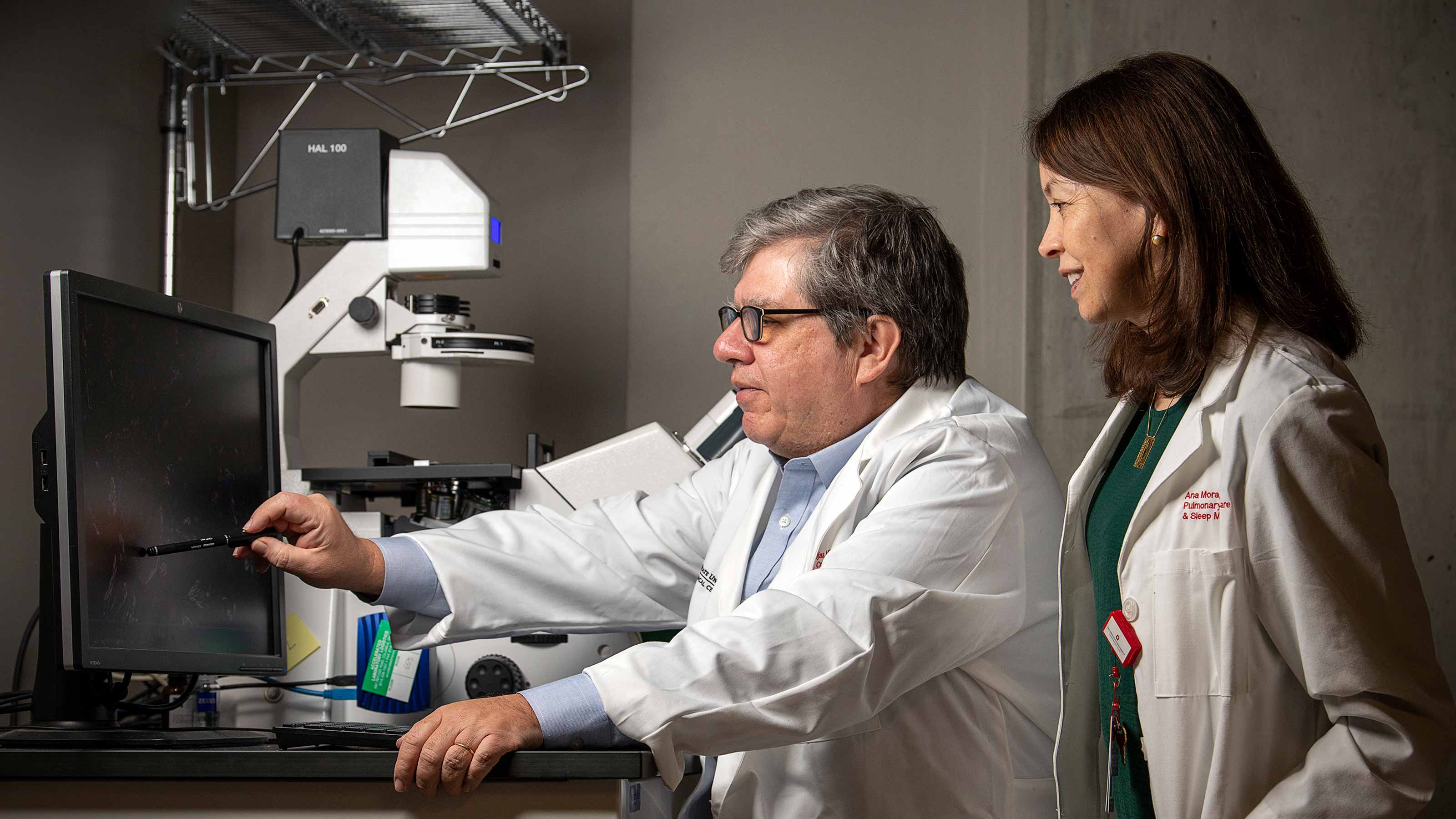
There’s a dire need for a quick-acting treatment that would snap people out of deep depressive episodes.
But there’s hope that using psilocybin, or hallucinogenic mushrooms, could be used as a quick-acting antidepressant.
“In a controlled setting, these medications could be delivered safely,” says Subhdeep Virk, MD, director of the Treatment-Resistant Depression Program at The Ohio State University Wexner Medical Center, who is leading a phase III psilocybin trial at Ohio State.
Dr. Virk, a psychiatrist at the Ohio State Wexner Medical Center and an associate professor at The Ohio State University College of Medicine, is the principal investigator of a clinical trial to determine whether mushrooms are effective in treating depression in patients where other forms of treatment haven’t been successful. The psilocybin compound used in the trial is made by COMPASS.
“So, there is excitement, especially from the data from some of the trials,” Dr. Virk says. “The trials are still ongoing, but it is promising.”
Why consider mushrooms for treating depression
For centuries mushrooms have been used to evoke a dramatic and often lasting response in your consciousness.
In the 1960s and 1970s, the drugs were regulated as Schedule I substances, which means there are no accepted medical uses for such drug due to the likelihood of them being abused.
Those regulations are still in place.
However, there’s been renewed interest in psychedelics because of several theoretical reasons why it could work, says K. Luan Phan, MD, chair of Ohio State’s Department of Psychiatry and Behavioral Health and a therapist for the trial.
“The thought is that doing psychedelics (magic mushrooms) alone is probably one piece,” he says. “But can it be supported with other elements that could facilitate a positive change?”
Why researchers think mushrooms could be an effective depression treatment
- Mushrooms could help shift one’s perspective from an overly self-focused mindset to a broader mindset. Those with depression are often hardwired to critically self-focus. Psychedelics may open the possibility that the world, both physically and perhaps spiritually and emotionally, might be beyond you, Dr. Phan says. There’s a mindset shift.
- Psychedelics, such as mushrooms, work on the serotonin and dopamine systems. Those two neurotransmitters are involved in mood, motivation and reward, and memory, which all might come into play in a way that shifts the neurochemical balance of the brain.
- Psychedelics could induce a sense of neuroplasticity. The brain is always changing. Maybe mushrooms trigger a neural transition, and the brain begins learning very differently, becoming very open to a mood change, Dr. Phan says.
Why more treatments for depression are needed
About 21 million adults in the U.S. — about 8.3% of the country’s population — have experienced at least one major depressive episode, according to the National Institute of Mental Health.
There are already many treatments for depression.
“The first line medications for some of those people don’t work well. They continue to struggle,” Dr. Virk says.
“The goal is really not only just getting to reduce the symptoms, but getting people more functional, and getting them out of this crisis that they’re in,” Dr. Virk says.
“We are limited with our current conventional treatments. There’s only so much response that people are getting,” he adds.
Numerous antidepressant drugs, such as Prozac, have been on the market for decades. But trying those medications on patients can take months.
“There’s a wait time. You have somebody who’s struggling with depression and you have to try medications. It’s trial and error to pick one. You don’t even know whether that medication is going to work for that patient,” Dr. Virk says. “The wait times are discouraging, and at some point, these people are giving up hope that this will work.”
That’s why researchers are considering mushrooms for those with treatment-resistant depression.
In those cases, people sometimes have suffered for decades and tried more than a dozen antidepressants and other forms of therapy, sometimes with little relief.
Mental illness, including depression, can become debilitating. That can result in a ripple effect of loss when it comes to jobs, relationships and overall well-being.
“Expectations are very high. I can’t tell you how many times people come in here and say, ‘If this does not work, what’s next?’” Dr. Virk says. “Honestly, that’s the most difficult part — how do we manage those expectations? It’s really challenging.”
Researchers are optimistic that mushrooms could be a quick and effective drug to help jumpstart patients’ recovery, just as ketamine, a drug originally used for anesthesia, showed promise in previous studies for depression.
Dr. Virk worked on trials with ketamine as well.
“We don’t know how it’s going to pan out. I think I’m seeing the same thing with psilocybin. I hope that the more we know about it, that it’s here to stay. It offers something in a treatment that we don’t have,” she says.
There are still many unknowns and challenges ahead for psilocybin treatment.
If the treatment becomes standardized, it will be challenging to give access to patients.
“It does require a lot of resources,” Dr. Virk says.
For some patients, there’s a risk that they could get worse.
“We are worried about worsening suicidal thoughts or behavior because some patients, in the context of their mood illness, already have that. Now you’re giving them medication that, again, we cannot predict which direction it’s going to go,” Dr. Virk says.
However, for those who have had a positive experience, the treatment has been as much as 70% to 80% effective, she says.
“So how can we select the right patients for the right treatment? I think that’s the bigger question,” Dr. Virk says.
Researchers in psychiatry haven’t yet identified biomarkers to determine which patient groups are most likely to benefit from these medications. More research is needed.
How the trial works
When mushrooms are given during the trial, the session lasts for about six to eight hours and requires a physician as well as two therapists.
Therapists undergo extensive training to be prepared for patients who have both positive and negative reactions.
Providers administering psilocybin need an additional license, since it’s a Schedule I drug and requires more regulatory oversight.
The trial, which is divided into three phases and began enrollment in 2023, is specifically designed for patients who aren’t on an antidepressant.
“Psilocybin is very unique in terms of what the patient’s experience during their session. It’s a mystical kind of experience or altered state of consciousness there,” Dr. Virk says.
Researchers also factor in communities and cultures that patients come from. That could potentially affect their experience with psilocybin.
The trial is double-blinded, meaning sometimes placebos are given instead of psilocybin to rule out any bias — in both participants and researchers.
Patients who are given psilocybin are given two doses three weeks apart.
Eventually, Dr. Virk hopes to be able to study combining therapies for depression using psilocybin in future studies.
Close attention is being paid to participants who are now out of their depression.
“After they’re done with the study, we hope that patients will continue to benefit from these treatments, to maintain remission and to be symptom-free. They need to continue with some kind of treatment, long-term,” Dr. Virk says.

Help for mental health conditions
Ohio State offers personalized, compassionate care for your mental health concerns.
Learn more



